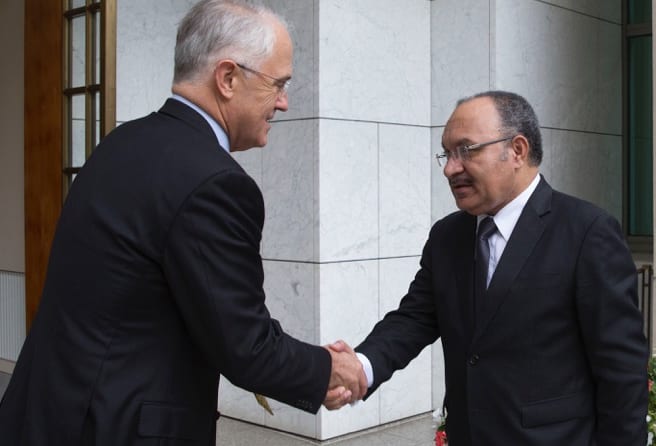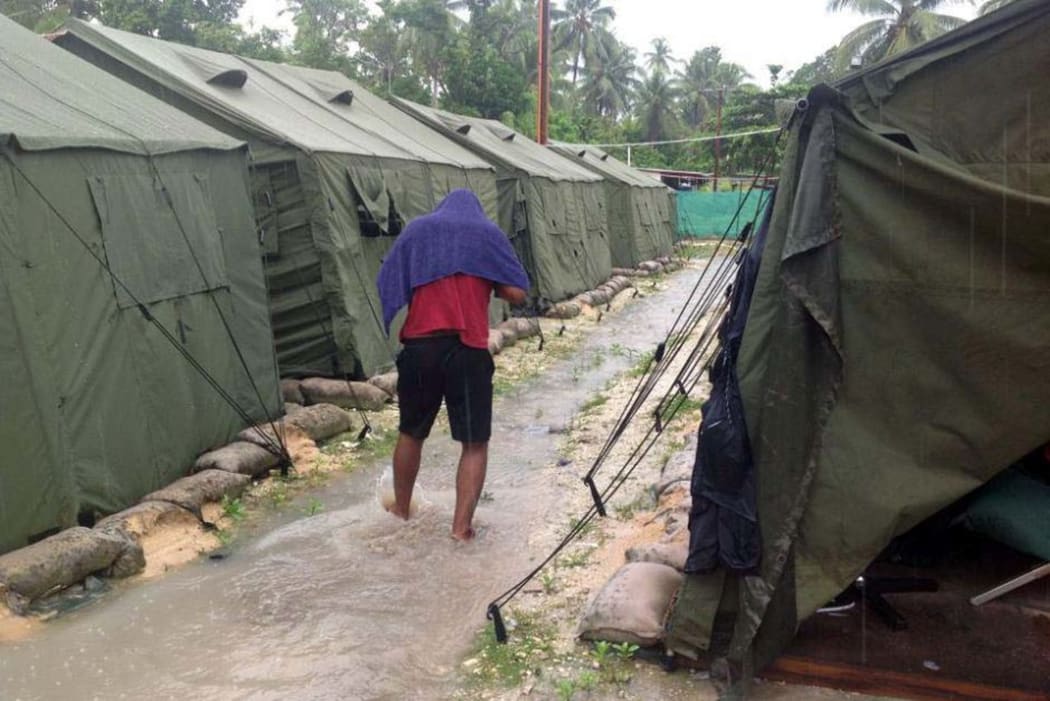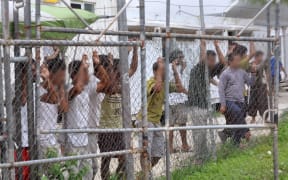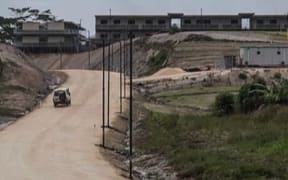The Manus Regional Processing Centre will be closed following the Supreme Court's ruling that it is illegal, Papua New Guinea's Prime Minister Peter O'Neill says.

Australia's Malcolm Turnbull meets his Papua New Guinea counterpart, Peter O'Neill, in Canberra. Photo: Supplied
The court yesterday released its ruling against the arrangement to detain asylum seekers who had tried to reach Australia on Manus Island.
Mr O'Neill said he respected the ruling, and PNG would immediately ask the Australian government to make alternative arrangements for the asylum seekers currently held at the centre.
In the wake of the court ruling, Australia's Immigration Minister Peter Dutton had said detainees on Manus would not be brought back to Australia.
Even though Australia had sent them to Manus, Mr Dutton said it was not Australia's responsibility to resettle them.
Mr O'Neill admitted that, after signing the deal to house asylum seekers on Australia's behalf in 2012, his government did not anticipate them to be kept as long as they had been at Manus.

A supplied image of part of the Manus Regional Processing Centre Photo: REFUGEE ACTION COALITION / AFP
"For those that have been deemed to be legitimate refugees, we invite them to live in Papua New Guinea - only if they want to be a part of our society and make a contribution to our community," he said.
This month, PNG Immigration said 481 people on Manus had been found to be refugees - and were eligible for settlement in PNG.
Another 465 asylum seekers were still having their claims assessed.
The authorities said 68 people had left the centre to prepare for life in PNG, and seven of them had already started life elsewhere in the country
Mr O'Neill said it was clear that some of the refugees did not want to settle in PNG.
Local impact of closure
The prime minister noted the closure of the centre would have a negative effect on the local economy on Manus.
"A number of local businesses have invested to expand their operations to support the Manus centre, and their businesses will now suffer," he said.
"These are many small and medium enterprises and their employees who will now be out of work. Our government will work with Australia in order to transition these businesses and workers to new opportunities so that their communities do not suffer."
Meanwhile, negotiations with Australia, he added, would focus on the timeframe for closing the Manus facility and managing the settlement of refugees interested in staying in PNG.
Mr O'Neill said he was proud PNG was able to play an important part in stopping the loss of life that was occurring due to people-smuggling.
"We appreciate the reasons why people might seek to make such a perilous journey to find a better life," he said.
Refugees were often fleeing from war or disaster, and the global community had to step up and do more to help, he said.
"But there can be no justification for the vile trade in human misery that is peddled by people-smugglers."
'Not in the interests of PNG'
Meanwhile, the successful lawyer in the Supreme Court decision said the Manus deal was never in the interests of PNG and it breached human rights.
Loani Henao represented former opposition leader Belden Namah, who had said he was bringing the matter on behalf of people in PNG as the deal between Australia and PNG was unconstitutional.
"The MOU [memorandum of understanding] was signed at the behest of a foreign government. It was not in the interests of Papua New Guinea and its people," Mr Henao said.
He said the onus was on the PNG government to comply immediately by taking steps to stop unlawfully holding the asylum seekers against their will.




